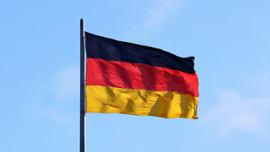Summary
- Germany is set to implement changes to its gambling laws by December 31, 2026.
- The process might have started earlier, as the regulator is seeking additional powers.
- It seems that stakeholders and the regulator are still in disagreement about the best course of action.
Germany has revised its gambling regulations to limit access to offshore operators and improve channelization. However, years later, disagreements persist between the industry and regulators, particularly the GGL and stakeholders, over the precise channelization figures. There is also ongoing debate about whether the current legal framework has inadvertently driven consumers toward offshore activities, strengthening unregulated operators and undermining legitimate ones.
New changes coming to Germany’s regulated gambling market
As debates continue and with a review scheduled for submission by December 31, 2026, German state ministers took action at the Conference of Interior Ministers last June. They discussed a proposed Second State Treaty that aims to further amend the 2021 Interstate Treaty on Gambling (GlüStV). The intent is to enhance the market's resilience against offshore competition, empower regulators, and make regulated operators more appealing. After the GGL was ordered to cease issuing IP blocks in specific scenarios, complicating the regulation of offshore market operators, the ministers proposed changes to address this issue. The proposed amendments would enable the regulator to impose IP blocks, restricting offshore operators from accessing German IPs, though such actions would need to be applied cautiously. The regulator would also face additional requirements, needing to work with intermediary services like ISPs to implement blocking measures. Generally, IP blocks have been criticized for potentially affecting legitimate businesses. For instance, a gambling advertisement on a website might be unintended, yet the resulting block could have significant repercussions. Critics highlight the risk of overblocking, while the GGL asserts that it would exercise these powers judiciously. Furthermore, the GGL will gain new authority, allowing it to consult with international counterparts regarding the eligibility of a brand or operator, based on the experiences of these overseas entities.
Will Germany address its channelization problem?
Enhancing collaboration with international regulators could enable the GGL to be more effective in licensing new companies and identifying those operators who, while licensed elsewhere, target the local market without authorization. A significant concern for most industry analysts remains the channelization rate. Research from the independent industry indicates that approximately half of all gamblers are using offshore companies. However, the GGL has dismissed these claims, asserting that the methodology used to reach this figure was flawed. Many of these topics will be addressed at the upcoming Gaming in Germany Conference on November 11, 2025.





























